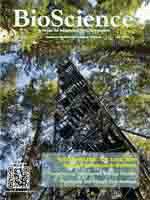Scenario studies have emerged as a powerful approach for synthesizing diverse forms of research and for articulating and evaluating alternative socioecological futures. Unlike predictive modeling, scenarios do not attempt to forecast the precise or probable state of any variable at a given point in the future. Instead, comparisons among a set of contrasting scenarios are used to understand the systemic relationships and dynamics of complex socioecological systems and to define a range of possibilities and uncertainties in quantitative and qualitative terms. We describe five examples of scenario studies affiliated with the US Long Term Ecological Research (LTER) Network and evaluate them in terms of their ability to advance the LTER Network's capacity for conducting science, promoting social and ecological science synthesis, and increasing the saliency of research through sustained outreach activities. We conclude with an argument that scenario studies should be advanced programmatically within large socioecological research programs to encourage prescient thinking in an era of unprecedented global change.
How to translate text using browser tools
1 April 2012
Scenario Studies as a Synthetic and Integrative Research Activity for Long-Term Ecological Research
Jonathan R. Thompson,
Arnim Wiek,
Frederick J. Swanson,
Stephen R. Carpenter,
Nancy Fresco,
Teresa Hollingsworth,
Thomas A. Spies,
David R. Foster
ACCESS THE FULL ARTICLE
It is not available for individual sale.
This article is only available to subscribers.
It is not available for individual sale.
It is not available for individual sale.

BioScience
Vol. 62 • No. 4
April 2012
Vol. 62 • No. 4
April 2012
futures
participatory engagement
science synthesis
socioecological systems




